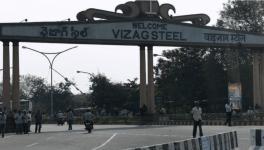Telangana: Dream of Self-Rule Shattered by Faulty Execution
Exactly six years ago, Telangana was carved out of Andhra Pradesh to fulfil the aspirations of a people who felt ignored, marginalised, and even subjugated under regimes of the erstwhile Andhra Pradesh. That purpose now stands shattered and the aspiration of a Golden Telangana or Bangaru Telangana remains unfulfilled.
The bifurcation of Andhra Pradesh was premised on self-rule over alien domination, and the expectation was that the ethnic leadership of the Telangana region would assertively safeguard the interests of its people. The catchphrase Bangaru Telangana was coined by the first chief minister of Telangana during the run-up to the state Assembly election in 2014. The populist slogan struck a chord in the hearts of the voters and the people gave an overwhelming majority to the Telangana Rashtra Samithi in the last Assembly election.
Ironically, the first government of the newly-born state, formed by the TRS, inherited the questionable legacy of the earlier regimes. The reports of the state Comptroller and Auditor General from 2015 to 2019, on the functioning of the Telangana government, decisively advances this argument.
Flawed budgeting:
According to the CAG report, the financial planning of the state economy failed to achieve its targets primarily due to non-allocation of funds for the intended purpose. In critical observations, the premier auditor of the state found that the government spent Rs. 76,236 crore on capital projects, out of which 50% went to irrigation and flood-control projects. Despite this massive outlay, work on the projects remained incomplete. The delay in the completion of projects not only adversely affected the quality of expenditure but also deprived the state of intended benefits and economic growth.
As per the report, the state government undertook 19 irrigation projects whose original cost was Rs. 41,201 crore but delays in completion escalated their cost at least three-fold, to Rs. 1,32,928 crore. Of this, some Rs. 70,785 crore had already been spent by FY 2018-19. The state also did not disclose the financial results of any of these irrigation projects.
The Union government had provided for two smart cities for Telangana under the central Smart Cities Mission, namely Hyderabad, Karimnagar and Warangal, and Rs. 183.46 crore was provided in the budget for the year 2015-16. The central Urban Development Ministry also released Rs 4 crore to prepare a Smart City Proposal required under the mission guidelines. But the state government re-appropriated the entire budget provision and the status of the smart city project remains unclear.
Asymmetrical welfare:
Better health, universal education, affordable housing and the uplift of Scheduled Castes and Scheduled Tribes as well as the other marginalised sections are key social indicators. The approach of the state towards enhancing the social infrastructure and to bridge the gap between the haves and have-nots remains ambiguous.
In 2017, the government established the Most Backward Classes Development Corporation to improve social, educational and financial conditions of the MBCs amongst the backward classes. This could not take off due to the non-approval of an action plan by the state government despite an allocation of Rs. 1,000 crore towards the scheme. An amount of Rs. 995.94 crore was finally withdrawn through re-appropriation on the last day of the financial year. The state government then stated (in January 2019) that the expenditure could not be incurred due to lack of definition of the term “most backward”.
Under the SC/ST Sub Plan, not even 50% of the allocated budget was spent by the government in 2015-16. As per the Andhra Pradesh Scheduled Castes Sub-Plan (SCSP) and the Tribal Sub-Plan (TSP) Act of 2013 (Planning, Allocation and Utilisation of Financial Resources), all government departments should earmark at least 15.44% and 9.34% of their total plan outlay in the budget exclusively for the development of SCs and STs respectively.
Specially targeted schemes are supposed to be designed with this allocation; that is, they must directly improve the economic and social condition of the SC/ST communities, either individually or as a group. Accordingly, in 2015-16 the state allocated Rs. 7,847.38 crore (15.58%) and Rs. 5,035.50 crore (9.37%) towards SCSP and TSP. Yet due to the non-release of funds for the two plans, the intended purpose was not achieved.
Decline in education:
Among the audit findings, the academic performance of government schools showed a declining trend in the period 2013-2016, which was mainly attributable to significant shortages in facilities and faculty, both in quantitative and qualitative terms. A majority of the residential institutions in the state lacked adequate accommodation and infrastructure facilities in terms of classrooms, dormitories, kitchens, dining halls, toilets, staff quarters, furniture and safe drinking water.
The minority residential schools and residential colleges in the state continued to suffer from the shortages of accommodation and infrastructure despite provision of funds.
Housing scheme in suspended animation:
It was the TRS’s pre-poll promise to provide complete subsidised housing to the poor in Telangana. A scheme was designed with an objective to provide two-bedroom homes to the poor, and the target was 2.80 lakh houses (1.26 lakh rural and 1.54 lakh urban houses). In 2015, the Housing and Urban Development Corporation (HUDCO) also gave a loan of Rs. 3,344 crore to the Telangana State Housing Corporation Limited for the purpose. The state government allotted Rs. 1,000 crore for this scheme. The target was not achieved as government spent only Rs. 75 crore. And yet, the government has gone to town, publicising this scheme.
IT sector in a shambles:
The government of Telangana enacted in December 2014 the Telangana State Industrial Project Approval and Self-Certification System (TS-iPASS) Act, 2014. The objective was to provide a single-point approval on behalf of all relevant departments for setting up industrial undertakings. The objective of the single-point approval was not achieved as the software allowed only selective approvals.
The Information and Technology Department did not ensure basic amenities before offering land parcels. Consequently, no land allotments were made during the last five years. A minimum use of allotted land for IT activities was not stipulated. There was no mechanism to monitor the development by IT firms within the time schedules. Prescribed procedures were not followed in the selection of consultants for T-Hub and Innovation in Multimedia, Animation, Gaming and Entertainment (IMAGE) Tower. Undue benefits were extended to the consultant and constructing agency in T-Hub. The entire process of selection of consultant architects for T-Hub and IMAGE towers was irregular and violated manual provisions. The tender process lacked transparency and fairness. This aspect deserves to be probed and accountability must be fixed.
The Information and Communication Technology (ICT) and Electronic Hardware (EH) policies provided for allotment of land to IT/EH firms. No land allotments were made from 2014 to 2017. There was resistance from IT firms to accept land parcels offered by the government due to lack of basic amenities and distance from the main city or the existing IT cluster. Besides, the government failed to ensure the utilisation of land allotted and investment by IT firms. As a result, the objectives of development through IT firms and employment generation could not be achieved.
In 2013, the UPA government at the Centre had approved the setting up of Information Technology and Investment Region (ITIR) in Hyderabad over 202 square kilometres, in two phases. Phase I was to be completed with internal infrastructure at a cost of Rs. 3,576 crore and external infrastructure at a cost of Rs. 942 crore by 2018. The ITIR was to generate a turnover of Rs. 3,10,849 crore and offer employment to 68 lakh people. It has remained a non-starter.
Invariably, much of the excess expenditure was spent on self-glorification of the Chief Minister and also in projecting his son as a global legend. Advertisements worth crores of rupees were doled out to vernacular media houses to check media criticism and to mould the content of newspapers in the interest of the government.
The overall findings of CAG reflect huge gaps between the rhetoric of policy-making and realistic implementation of the state government’s policies. The state’s economy is engulfed in deep fiscal imbalances and high revenue deficits. As the loans and borrowings climbed in last five years, the burden of interest repayments rose phenomenally, and the debt sustainability of the state exchequer has consequently gradually shrunk.
The adolescent state, in its initial years of formation, has failed to achieve the basic purpose of bifurcation, which was supposed to lead Telangana to prosper in self-rule. The challenge before the state, whose citizens feel let down, is to move beyond bleeding the state exchequer with populist measures. Behavioural change, which the Prime Minister recently advocated, is much needed in the functioning of the government in Telangana. Its populist schemes need a reality check and it needs a pragmatic and action-oriented approach to build a Golden Telangana.
The author is a fellow at the Rajiv Gandhi Institute of Development Studies, Thiruvananthapuram. The views are personal.
Get the latest reports & analysis with people's perspective on Protests, movements & deep analytical videos, discussions of the current affairs in your Telegram app. Subscribe to NewsClick's Telegram channel & get Real-Time updates on stories, as they get published on our website.
























